HSRI Members
While HSRI members may have research interests that overlap with multiple research clusters, they are listed below by their primary research cluster. Please scroll or click below to jump to a research cluster
- Basic & Behavioral Neuroscience
- Biomolecular Research
- Biosimulation & Modeling
- Cancer Research
- Decision Making
- Environment & Health
- Health Disparities
- Immunity & Infectious Diseases
- General Biomedical Sciences
- General Behavioral Sciences
Basic & Behavioral Neuroscience
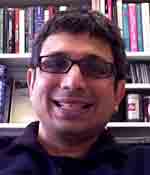 Ramesh Balasubramaniam
Ramesh Balasubramaniam
School of Social Sciences, Humanities & Arts
Email: ramesh@ucmerced.edu
Web site: Ramesh Balasubramaniam Lab
Sensorimotor neuroscience, complex systems, perception, action.
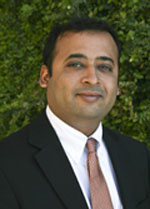 Anand Gadre
Anand Gadre
Director, Stem Cell Instrumentation Foundry (SCIF)
Email: agadre@ucmerced.edu
Phone: 658-3879
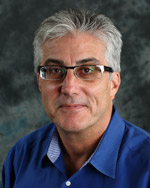 Jeff Gilger
Jeff Gilger
School of Social Sciences, Humanities & Arts
Email: jgilger@ucmerced.edu
Phone: 228-4641
Web site: Jeff Gilger lab
Learning disabilities/disorders, reading disabilities/disorders, dyslexia, giftedness, twice exceptionality, comorbidity, gifted dyslexic, spatial aptitude. Normal and abnormal neuropsychological development and genetics. Etiology of learning-language disorders Development and Health.
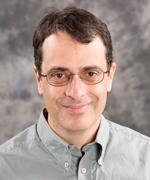 Marcelo Kallmann
Marcelo Kallmann
Natural Sciences
Email: mkallmann@ucmerced.edu
Phone: 228-4168
Web site: Marcelo Kallmann Lab
Professor Kallmann's areas of research include computer animation, virtual reality, motion planning and humanoid robotics. His current interests are related to motion interfaces for virtual reality, planning methods for human-like motions, and path planning in triangulations.
 Ramendra Saha
Ramendra Saha
Natural Sciences
Email: rsaha3@ucmerced.edu
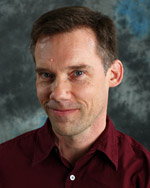 Fred Wolf
Fred Wolf
Natural Sciences
Email: fwolf@ucmerced.edu
Phone: 415-370-1132
Genetic and neural circuit coding mechanisms of simple behaviors in Drosophila.
Biomolecular Research
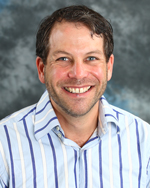 David Ardell
David Ardell
Natural Sciences
Email: dardell@ucmerced.edu
Phone: 228-2953
Web site: David Ardell lab
Computational biology of gene expression systems, including:Structure, function, evolution and coevolution with genomes. Functional and evolutionary bioinformatics of RNA and proteins. Evolutionary and comparative genomics.
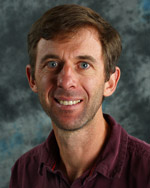 Michael Cleary
Michael Cleary
Natural Sciences
Email:mcleary4@ucmerced.edu
Phone: 228-4554
Web site: Michael Cleary lab
Dr. Cleary's research focuses on how complex tissues develop from relatively small populations of stem cells. Nervous system development in the fruit fly, Drosophila melanogaster, provides an excellent model system for studying this process. Lab focuses on how Drosophila neural stem cells, called neuroblasts, which produce the diversity of cell types found in the nervous system. How cell fate decisions are temporally regulated, so that distinct cell types are made at specific times during development. How mitotic activity is regulated, so that neuroblasts stop and start dividing at the proper time. How cell fate information is passed from a neuroblast to its progeny and the role of chromatin remodeling factors and other transcription factors in this process.
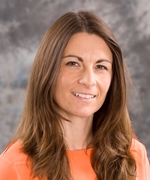 Linda Hirst
Linda Hirst
Natural Sciences
Email: lhirst@ucmerced.edu
Phone: 228-4569
Web site: Linda Hirst lab
Professor Hirst's lab focuses on soft-condensed matter physics, with interests in both biophysics and liquid crystal materials. Prof. Hirst studies the effects of cholesterol and polyunsaturated lipids on cell membrane structure, controlling lipid phase behavior and domain formation.
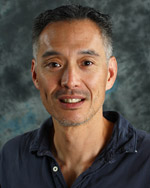 Andy LiWang
Andy LiWang
Natural Sciences
Email: aliwang@ucmerced.edu
Phone: 228-4617
Web site: Andy LiWang lab
Professor LiWang's laboratory is resolving the structural and biochemical basis of rhythmicity of the cyanobacterial circadian clock. The central oscillator of this clock is composed of only three proteins, which by themselves in a test tube with ATP generate a self-sustained circadian rhythm for several days. Their objective is to develop a comprehensive understanding of how a simple mixture of three proteins keeps time.
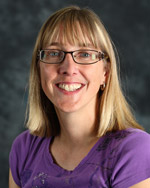 Patricia LiWang
Patricia LiWang
Natural Sciences
Email: pliwang@ucmerced.edu
Phone: 228-4568
Web site: Patricia LiWang lab
The overall theme of our laboratory’s research is to study proteins at the molecular level using biochemical analyses alongside powerful tools such as nuclear magnetic resonance (NMR). This includes not only structure determination, but also biological assays of proteins and their mutants in order to understand the structural underpinnings of biological function. We often work with members of the chemokine family of proteins, which are inflammatory proteins, several of which have been shown to block infection by HIV-1, making an analysis of their action crucial for AIDS research. Most recently we have made an extremely potent HIV inhibitor against both R5 and X4 virus using the RANTES variant 5P12-RANTES (originally discovered by the Hartley group) linked to a C-peptide.
We also have a long-standing interest in saccharide binding, leading to our ongoing work with the potent HIV entry inhibitor griffithsin. We have linked this protein with a C-peptide, leading to even more potent HIV inhibition, and are also studying the details of the biochemical properties of griffithsin.
Our work with chemokines and chemokine binding proteins also includes a study of how to inhibit the chemokine system to stop inflammation. This work includes both the proteins vMIP-II and vCCI (see right side for papers on both proteins).
Overall, we use a combination of mutagenesis, NMR techniques, cellular assays, and HIV assays to learn about chemokines and chemokine binding proteins, and to elucidate their role in inflammation and suppressing HIV-1 infection.
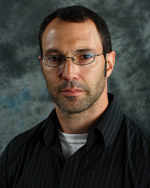 Matthew Meyer
Matthew Meyer
Natural Sciences
Email: mmeyer@ucmerced.edu
Phone: 228-2982
Web site: Matthew Meyer lab
Professor Meyer's research is directed toward developing techniques to aid in drug discovery. Students in his lab have the opportunity to become proficient in:
- Organic synthesis
- Protein expression and purification
- Modern NMR techniques
- Computational chemistry
Drugs are often small molecules that inhibit enzymes or receptors in the body. The inhibitors that are important for use as therapeutic agents are usually molecules that preferentially compete for the binding site(s) on an enzyme or receptor.
Currently, Professor Meyer is working on developing a technique that quantitatively probes the binding interactions of lipoxygenases with their natural substrates along the reaction pathway from reactants to products. Human lipoxygenases are important because they have been implicated in asthma, heart disease, various cancers, and a host of other diseases. Developing techniques to measure how strongly these enzymes interact with their substrates along the reaction pathway may lead to information that is crucial to designing drugs to treat these diseases — specifically those that utilize many of the structural features of the natural substrate. This is important because it could allow for the efficient design of therapeutic lead structures that would not be as likely to produce unforeseen side effects. A development of this nature could significantly reduce the costs associated with drug development in the pharmaceutical industry.
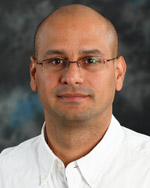 Nestor Oviedo
Nestor Oviedo
Natural Sciences
Email: noviedo2@ucmerced.edu
Phone: 228-4541
Web site: Nestor Oviedo lab
Tissue regeneration. Stem cells. Cancer. Planarian biology
Biosimulation & Modeling
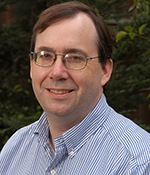 Mike Colvin
Mike Colvin
Natural Sciences
Email: mcolvin@ucmerced.edu
Phone: 228-4364
Web site: Quantitative Systems Biology web site
Professor Colvin's research uses a wide range of simulation methods to model biological systems at different levels. Much of his research uses molecular modeling to study biochemical problems, with a particular emphasis on modeling the activity of DNA-binding food mutagens and anticancer drugs. These methods involve computing the structures and energetics of biomolecules using either quantum or classical mechanics, and often require the use of supercomputers.
Other molecular modeling projects include studying:
- Synthetic analogs to nucleic acids and exotic nucleic acid structures
- The function of DNA-processing multiprotein complexes
- The mechanism of cytochrome P450 and other enzymes
More recently, Colvin's research interests have expanded to include simulations of biophysical and cellular processes using equations that describe the system as continuous (and sometime stochastic) dynamical systems. These projects include:
- Simulating the formation mutagenic compounds during cooking
- The operation of the nuclear pore complex
- Cell fate decisions
These projects offer a wide range of research projects for students interested in the application of mathematics and computers to understand the living world.
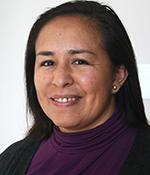 Lilian Davila
Lilian Davila
Engineering
Email: ldavila@ucmerced.edu
Phone: 228-4707
Web site: Lilian Davila lab
Materials science, computer simulations, nanotechnology, biomaterials The structure of materials. Nanostructures and nanomaterials for applications in technology and medicine. Biomaterials and environmental materials. Involve experimental and computational methods.
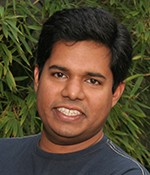 Ajay Gopinathan
Ajay Gopinathan
Natural Sciences
Email: agopinathan@ucmerced.edu
Phone: 228-4048
Web site:Ajay Gopinathan lab
Prof. Gopinathan's research interests include addressing problems in biophysics, soft condensed matter and the interface between the two fields. Use of theoretical and computational techniques from different areas in soft matter and statistical mechanics including polymer physics, elasticity and anomalous transport. Biological Transport. Drug design, colloidal dynamics, self-organization at surfaces, the geometry and dynamics of elastic sheets, transport in disordered systems and fluctuation induced forces. Soft Matter and Biomaterials and Biological Modeling and Simulation Cluster (BMSC).
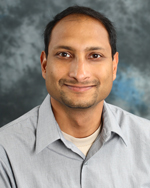 Sachin Goyal
Sachin Goyal
Natural Sciences
Email: sgoyal@ucmerced.edu
Phone: 228-4048
Web site: coming soon
Dr. Goyal's research interests include computational dynamics, mechanics and controls, with applications primarily in micro-scale biological systems; continuum-dynamics- and multi-body-dynamics-based modeling, and inverse modeling, of DNA and proteins, and their interactions; and constitutive law modeling of bio-filaments from their molecular dynamics simulations.
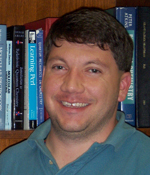 Hrant Hratchian
Hrant Hratchian
Natural Sciences
Email: hhratchian@ucmerced.edu
Phone: 228-2365
Web site: Hrant Hratchian Lab
Developments in quantum chemistry and potential energy surface exploration methods; computational inorganic chemistry; mechanistic study and rational design of transition metal catalysts.
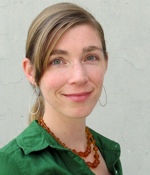 Christine Isborn
Christine Isborn
Natural Sciences
Email: cisborn@ucmerced.edu
Phone: 228-4693
Web site: Christine Isborn lab
Developing and applying electronic structure theory, molecular dynamics and QM/MM methods to the modeling of electronic excited states, photochemistry, energy and electron transfer and solvation.
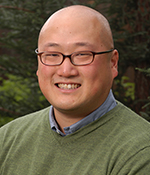 Arnold Kim
Arnold Kim
Natural Sciences
Email: adkim@ucmerced.edu
Phone: 228-2951
Web site: Arnold Kim lab
Professor Kim is interested in interdisciplinary research problems at the interface between mathematics, science and engineering. In particular, he studies wave propagation in random media with applications to biomedical optics and wireless communications.
This research includes the study of differential and integral equations, asymptotic analysis, scientific computing and inverse problems.
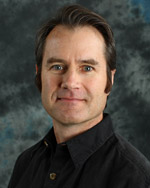 Shawn Newsam
Shawn Newsam
Engineering
Email: snewsam@ucmerced.edu
Phone: 228-4167
Web site: Shawn Newsam lab
Image processing. Computer vision. Pattern recognition. Machine learning. Content-based information retrieval. Digital libraries, data mining and knowledge discovery in spatio-temporal, multimedia and scientific datasets.
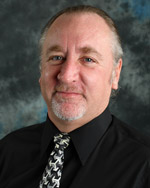 David Noelle
David Noelle
Engineering/School of Social Sciences, Humanities & Arts
Email: dnoelle@ucmerced.edu
Phone: 228-4101
Web site: David Noelle lab
Computational cognitive neuroscience. Connectionism. Cognitive control. Learning from direct instruction. Rule-guided behavior. Concept formation. Working memory. Implicit/explicit learning. Cognitive neuroscience. Computational neuroscience. Cognitive psychology. Machine learning. Artificial intelligence.
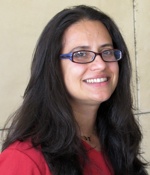 Susanne Sindi
Susanne Sindi
Natural Sciences
Email: ssindi@ucmerced.edu
Phone: 228-4224
Dr. Sindi's research interests include mathematical biology, dynamical systems and computational biology.
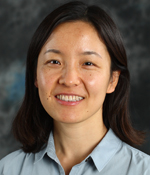 Jing Xu
Jing Xu
Natural Sciences
Email: jxu8@ucmerced.edu
Web site: Jing Xu Lab
Experimental biophysics, quantitative biology, optical trapping, single-molecule and small-ensemble experiments, molecular motors
Cancer Research
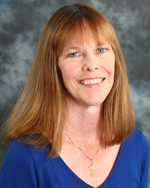 Linda Cameron
Linda Cameron
School of Social Sciences, Humanities & Arts
Email: lcameron@ucmerced.edu
Phone: 228-2252
Web site: Linda Cameron lab
Dr. Cameron's research focuses on developing health communications and psychosocial interventions for individuals who have or are at risk for illnesses such as cancer, heart disease, and diabetes. This research takes a self-regulation perspective by evaluation the cognitive and emotional processes influencing health behaviors and illness experiences. She focuses on both theoretical and applied aspects of issues in order to address the parallel goals of developing theoretically-based interventions and refining psychological theory. Her research has included the development and evaluation of psychosocial support programs for women with breast cancer, therapeutic writing techniques for stress management, and exercise therapy as an aid for smoking cessation. In her health communications research risk, she is exploring the impact of visual images and animations on responses to risk communications such as graphic warning labels for tobacco products and information about genetic testing for disease susceptibility.
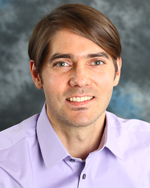 Fabian Filipp
Fabian Filipp
Natural Sciences
Email: filipp@ucmerced.edu
Phone: 858-349-0349
The Cancer Metabolism laboratory at UC Merced is interested in early detection and new ways to treat cancer cells, with one focus area being melanoma. We study the set of chemical reactions that happen in cancer cells to grow and reproduce, in other words we try to capture the systems biology of cancer metabolism. The Health Sciences Research Institute (HSRI) at UC Merced provides a fantastic framework to build collaborations with local physicians at the Cancer Center of the Mercy Medical Center Merced (MMCM).
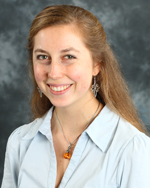 Erin Gaab
Erin Gaab
Lecturer, School of Social Sciences, Humanities & Arts, HSRI Researcher
Email: egaab@ucmerced.edu
Erin is currently lecturing in health psychology. Her research interests lie in developmental, social and health psychology, especially pediatric palliative care including communication and decision-making in families when a child is ill.
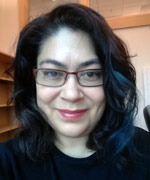 Mariaelena Gonzalez
Mariaelena Gonzalez
School of Social Sciences, Humanities & Arts
Email: mgonzalez82@ucmerced.edu
Phone: 228-2232
Web site: Mariaelena Gonzalez lab
Dr. Gonzalez’s research focuses on cancer control, health disparities, including oral health disparities, and the ways in which social and environmental factors affect health risk behaviors. Dr. Gonzalez’s research areas includes cancer control, tobacco control, and understanding the unexpected risks and benefits of tobacco control policies, as well as the linkages between tobacco use and other risk behaviors. Dr. Gonzalez also studies the ways in which health behaviors, such as health information seeking behavior, vaccinations and physician visits, differ between first, second, and third generation Latinos.
Dr. Gonzalez’s previous research has examined scientific and medical occupational pipelines, the passage of smokefree laws in the United States, as well as the passage of smokefree laws in the Netherlands.
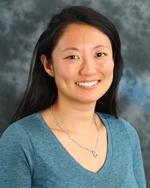 Anna Song
Anna Song
School of Social Sciences, Humanities & Arts
Email: asong5@ucmerced.edu
Phone: 228-4591
Web site: Anna Song lab
Adolescent and young adult decision-making as it pertains to risk behaviors. Tobacco use initiation, continuation, and cessation. Risk factors for sex initiation. Relationship between perceptions, attitudes, and risk behaviors. Predictors of health-related perceptions and attitudes. Risk communication efficacy. Ethnic differences in risk behaviors. Longitudinal methodology.
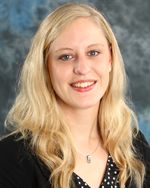 Jitske Tiemensma
Jitske Tiemensma
Social Sciences, Humanities & Arts
Email: jtiemensma@ucmerced.edu
Web site: Jitske Tiemensma lab
Tiemensma's primary research interests are in health psychology. Her current research involves:
- Emotion suppression tendencies in chronic disease
- Illness perceptions Patients’ drawings
- Quality of life
Health Decision Making
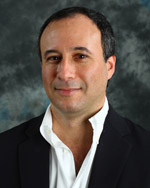 Evan Heit
Evan Heit
School of Social Sciences, Humanities & Arts
Email: eheit@ucmerced.edu
Phone: 228-4334
Web site: Evan Heit lab
Professor Heit's research interests include reasoning, memory, and categorization. Mathematical modeling of cognitive processes. Judgment and decision making, metacognition, political cognition, and cognitive development.
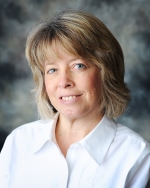 Deborah Wiebe
Deborah Wiebe
School of Social Sciences, Humanities & Arts
Email: dwiebe@ucmerced.edu
Phone: 228-4614
Web site: Deborah Wiebe lab
Professor Wiebe's area of research include diabetes, health, and pediatric psychology
Environment & Health
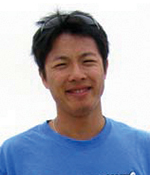 Yihsu Chen
Yihsu Chen
School of Engineering
Email: ychen26@ucmerced.edu
Phone: 209-228-4102
Website: Yihsu Chen lab
Research Interests in Environmental Health
Interactions of environmental policies and energy industry. Emissions and economic implications when the energy sector is subject to various market-based environmental instruments. Empirical research that addresses the effect of transportation infrastructure and environmental regulation on air quality and human health.
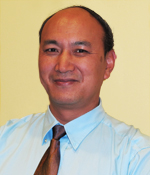 YangQuan Chen
YangQuan Chen
School of Engineering
Email: ychen53@ucmerced.edu
Phone: 209-228-4672
Website: YangQuan Chen lab
Research Interests in Environmental Health
Dr. Chen develops intelligent robotic systems including drones as robotic co-scientist for sustainability issues including environmental health. His recent interests include using drones as mobile data collector for air and water quality tasks. Specifically, he tries to sample air-borne microbial (e.g. Valley Fever virus) and environmental DNA (eDNA). In “data drone” research, he puts emphasis on smart sampling methods addressing the question of optimal sampling strategies on how to acquire most interesting information in most interesting locations and moments. He is also interested in human stress detection when humans work with automated systems including drones, by using physiological signal’s variability and fractional calculus.
Teaching and Service
Dr. Chen teaches ME142 Mechatronics, fundamental for students to develop various smart health devices that involve mechanical and electronic engineering, control systems, computer science in a synergistic manner. He serves as Senior Editor for Journal of Intelligent and Robotic Systems, a founding Associate Editor for Unmanned Systems and Topic Editor-in-Chief on Field Robotics for Int. J. of Advanced Robotic Systems.
In the media
Data drone news at Fox Channel 26
CITRIS Water Quality Drone story
System Simulation Techniques with MATLAB® and Simulink®
Keywords
robotic co-scientist for environmental health, human factor in automation, state-of-human observer
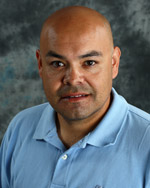 Ricardo Cisneros
Ricardo Cisneros
School of Social Sciences, Humanities and Arts
Email: rcisneros@ucmerced.edu
Phone: 209-228-4786
Website: Coming soon
Research Interests in Environmental Health
Environmental health, air quality research and management, GIS, and exposure assessment/environmental epidemiology.
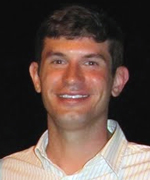 Justin Cook
Justin Cook
School of Natural Sciences
Email: Coming soon
Phone: Coming soon
Website: Coming soon
Research Interests in Environmental Health
My research is focused in understanding adaptations to the Neolithic Revolution and how these adaptations are related to historic and contemporary differences in both health and economic outcomes. Additionally, I am interested in exploring heterogeneity from candidate genes in the effect of early-life environments on later-life outcomes.
Keywords
Neolithic Revolution, Gene-Environment Interaction, Infectious disease resistance, HLA diversity, Lactase persistence
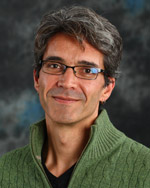 Michael Dawson
Michael Dawson
School of Natural Sciences
Email: mdawson@ucmerced.edu
Phone: 209-228-4056
Website: Michael Dawson lab
Research Interests in Environmental Health
Our lab investigates the origins, maintenance and loss of biodiversity, from molecular to ecosystem levels. We apply our work to improve sustainable management of living resources, and are interested in the ‘ecosystem services’ provided by functioning natural ecosystems. Particularly, in a time of rapid local and global environmental change, we are intrigued by the change or loss of those services and how this may influence human well-being. We are studying recovery of marine invertebrate populations following extreme warming events in the western Pacific and following harmful algal blooms along the California coast.
Teaching and Service
I teach evolutionary biology in the biological sciences curriculum, in which we apply general evolutionary theory to explore the consequences of global change on biodiversity, living resources management, evolution of infectious diseases, and origins of emerging diseases and zoonoses.
Keywords
Ecology of Infectious Disease, Ecosystem Services, Evolution of Infectious Disease
 Tom Harmon
Tom Harmon
School of Natural Sciences
Email: tharmon@ucmerced.edu
Phone: 209-228-4337
Website: Tom Harmon lab
Research Interests in environmental health
Coming soon
Teaching and Service
Coming soon
In the media
Coming soon
Keywords
coming soon
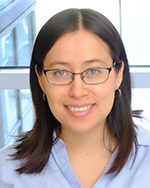 Emilia Huerta-Sanchez
Emilia Huerta-Sanchez
School of Natural Sciences
Email: ehuerta-sanchez@ucmerced.edu
Phone:
Website: Emilia Huerta-Sanchez lab
Research Interests in environmental health
Understanding interactions between genetic and environmental factors may be key to the improvement of human health. As part of my research, I am trying to understand how humans cope with low oxygen conditions. While there are some individuals that are genetically adapted to live at high altitudes, exposure to this environment in other individuals may have deleterious effects. For example, it is already known that continuous exposure to low oxygen conditions may lead to pregnancy complications and cardiovascular disease. Even at low altitude, studies have shown that conditions such as sleep apnea may be a risk factor for Alzheimer’s disease and dementia. My work focuses on identifying important genes that regulate the response to hypoxia and to characterize the relationship between the genetic and environmental effects.
Teaching and Service
I have taught courses in statistical and population genetics that provide the background for tackling research in human evolution.
In the media
Study of people living at high altitude focuses on key gene
High altitude adaptations: The work of Emilia Huerta-Sánchez
Keywords
Population genetics, human evolution, genetic variation
 Andrea Joyce
Andrea Joyce
School of Social Sciences, Humanities and Arts: Public Health
Email: ajoyce2@ucmerced.edu
Phone: 209-228-2381
Website: http://faculty.ucmerced.edu/ajoyce2
Research Interests in environmental health
My research investigates ecological alternatives to insecticides for insect control, such as biological control and integrated pest management, to reduce the use of pesticides. I am also interested in how environmental factors can influence the genetic divergence and evolution of insect populations.
Teaching and Service
I teach Insects and Public Health, and have also taught Introduction to Environmental Science.
In the media
UC Merced to study West Nile virus
Keywords
Integrated pest management, entomology, biological control, vector ecology, alternatives to pesticides
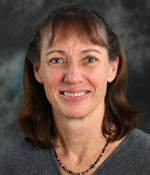 Peggy O'Day
Peggy O'Day
School of Natural Sciences
Email: poday@ucmerced.edu
Phone: 209-228-4338
Website: Peggy O'Day lab
Research Interests in environmental health
Coming soon
Teaching and Service
Coming soon
In the media
Coming soon
Keywords
coming soon
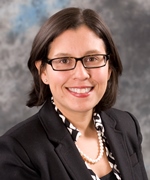 A. Susana Ramírez
A. Susana Ramírez
School of Social Sciences, Humanities and Arts: Public Health
Email: sramirez37@ucmerced.edu
Phone: (209) 228-4007
Website: A. Susana Ramirez lab
Research Interests in environmental health
My research examines the influence of communication on individual- and population-level health outcomes, and I have specific interests in Latino health and in cancer prevention. Living in this region offers a unique opportunity to examine environmental factors such as air quality, pesticide exposure, and the built environment that contribute independently and through indirect pathways to cancer risk. My research seeks to harness the power of communication to improve these risks.
Teaching and Service
In my Health Communication course, students are taking a hands-on approach to understanding media and communication influences on health by designing a campaign to change behaviors to improve air quality and/or obesity in Merced.
In the media
UC Merced Connect: Professor studies how information consumption impacts health behaviors
How information consumption impacts health behaviors
Keywords
Climate and health, pesticides, healthy places, mass media, media advocacy, communication campaigns
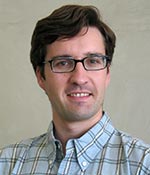 Alexander Whalley
Alexander Whalley
School of Social Sciences, Humanities and Arts
Email: awhalley@ucmerced.edu
Phone: 209-228-4027
Website: Alexander Whalley lab
Research Interests in environmental health
My research examines the influence of infrastructure on regional well being. Recent research quantifies the effects of one major type of transportation infrastructure — urban rail transit — on air quality using the sharp discontinuity in ridership on opening day of a new rail transit system in Taipei. We find that the opening of the Metro reduced air pollution from one key tailpipe pollutant, carbon monoxide, by 5 to 15 percent but not ground level ozone pollution. Ongoing work seeks to evaluate the environmental consequences of land regulation in agriculture.
Teaching and Service
In my Urban and Regional economics course students learn about the determinants of regional well-being and the scope for regional policies to improve places.
Health Disparities
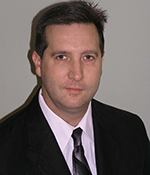 Paul Almeida
Paul Almeida
School of Social Sciences, Humanities & Arts
Email: palmeida@ucmerced.edu
Phone: 228-3002
Web site: Paul Almeida lab
Dr. Almeida's work includes research on the restructuring and privatization of public hospitals and health services in Latin America; collaborative projects on how victims of mercury poisoning are able to coordinate advocacy efforts to gain the attention of policy-makers for medical compensation and relief; and societal conflicts over private versus public management of water and sewage systems.
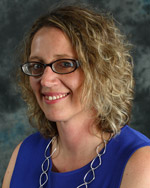 Irenee Beattie
Irenee Beattie
School of Social Sciences, Humanities & Arts
Email: ibeattie@ucmerced.edu
Phone: 228-4596
Web site: Irenee Beattie lab
Dr. Beattie’s research focuses on the sociology of education, social inequality (race, gender and class), adolescent transitions to adulthood, and law and social policy. Her work has been funded by grants from the American Educational Research Association and she has published in such outlets as Sociology of Education, Criminology, and on Harvard University Press. A current project examines how traditional gender socialization in families and schools during adolescence negatively affects young men’s educational outcomes, particularly among those from high poverty schools. Another study uses propensity score modeling to examine the causal effects of high school academic coursework on racial/ethnic inequality in student outcomes.
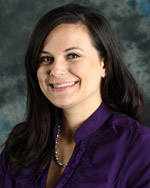 Sarah Depaoli
Sarah Depaoli
School of Social Sciences, Humanities & Arts
Email: sdepaoli@ucmerced.edu
Web site: Sarah Depaoli lab
Latent variable modeling. Structural equation models. Finite mixture models. Longitudinal models. Bayesian latent variable modeling. Bayesian model mis-specification. Categorical latent variable models
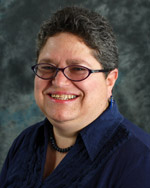 Linda-Anne Rebhun
Linda-Anne Rebhun
School of Social Sciences, Humanities & Arts
Email: lrebhun@ucmerced.edu
Phone: 228-4550
Web site: Linda-Anne Rebhun lab
Medical anthropology: maternal and child health. Psychological anthropology: emotions and romance. Gender. Religion: magic, witchcraft and folk Catholicism. Folklore. Latin America, African Diaspora and Africa.
 Zulema Valdez
Zulema Valdez
School of Social Sciences, Humanities & Arts
Email:
Phone:
Web site: coming soon
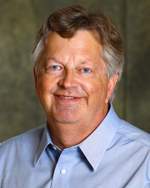 Jan Wallander
Jan Wallander
School of Social Sciences, Humanities & Arts
Email: jwallander@ucmerced.edu
Phone: 228-4028
Web site: Jan Wallander lab
Health psychology and developmental psychopathology. Interactions between behavior and health in children and adolescents. Effects of chronic disease or disability on quality of life in childhood. Behavioral interventions to improve health and quality of life in children and adolescents.
Immunity & Infectious Diseases
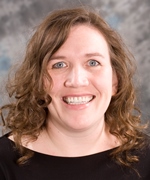 Miriam Barlow
Miriam Barlow
School of Natural Sciences
Email: mbarlow@ucmerced.edu
Phone: (209) 228-4174
Web site: Miriam Barlow Lab
Evolution of bacteria. Predicting the evolution of antibiotic resistance. Testing evolutionary theory.
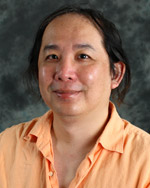 Wei-Chun Chin
Wei-Chun Chin
Engineering
Email: wchin@ucmerced.edu
Phone: 228-8668
Web site: Wei-Chun Chin lab
Professor Chin's studies have focused on the application of polymer physics, microfabrication and engineering principles to biological systems. The application of the theory and tools from engineering in his work has initiated many innovative and productive research projects. These studies have brought us a better understanding of natural phenomena from the unique perspective of engineering. Professor Chin's current research plans include:
- Intracellular Ca2+ signaling in acute pancreatitis, cystic fibrosis, asthma and chronic obstructive pulmonary disease
- Applications of microfabrication techniques to study microenvironment effects on stem cell differentiation
- Spontaneous polymer gel assembly in aqueous environment
- Intracellular and intercellular signaling in unicellular phytoplankton cells
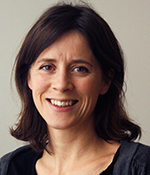 Carolin Frank
Carolin Frank
Natural Sciences
Email: cfrank3@ucmerced.edu
Web site: Carolin Frank Lab
Environmental and symbiotic microbiology and genomics
 Aaron Hernday
Aaron Hernday
Natural Sciences
Email: ahernday@ucmerced.edu
Web site: Coming Soon
Systems control principles and molecular mechanisms that underlie cellular decision making.
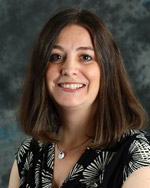 Katrina Hoyer
Katrina Hoyer
Natural Sciences
Email: khoyer2@ucmerced.edu
Phone: 228-4229
Web site: Katrina Hoyer lab
Autoimmune disease (or autoimmunity) and immunology.
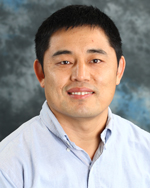 Changqing Li
Changqing Li
Engineering
Email: cli32@ucmerced.edu
Phone: 228-4777
Web site: Coming soon
Dr. Li's research interests include biomedical imaging instrumentation and reconstruction algorithm development, focusing on preclinical imaging; X-ray Luminescence Optical Tomography (XLOT); simultaneous Fluorescence Optical Tomography (FOT) and Positron Emission Tomography (PET); and cerenkov Luminescence Imaging (CLI)/Tomography (CLT).
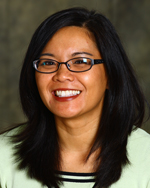 Jennifer Manilay
Jennifer Manilay
Natural Sciences
Email: jmanilay@ucmerced.edu
Phone: 381-4175
Web site: Jennifer Manilay lab
Developmental immunology. Mechanisms that control cell fate decisions in the immune system. Development of T lymphocytes, important components of immune defense against pathogens.
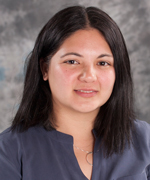 Clarissa J. Nobile
Clarissa J. Nobile
Natural Sciences
Email: cnobile@ucmerced.edu
Phone: 228-2427
Professor Nobile's research is directed toward understanding the molecular and mechanistic basis of microbial communities. Her lab is interested in investigating how transcriptional networks underlie the regulation of gene expression during biofilm development. Much of this work is carried out in the species Candida albicans, the most prevalent fungal pathogen of humans. The lab is also beginning to study interspecies interactions between different fungal and bacterial species.
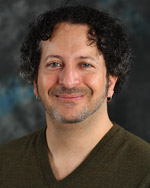 Marcos Ojeda-Garcia
Marcos Ojeda-Garcia
Natural Sciences
Email: mgarcia-ojeda@ucmerced.edu
Phone: 228-6986
Web site: Quantitative Systems Biology group
Using the hematopoetic (bone marrow) stem cell as a model, the microenvironmental and genetic signals required for stem cell function and lymphocyte development are studied. In particular, the role of the transcription factor GATA-3 in the commitment and differentiation of stem cells into T cells.
General Biomedical Sciences
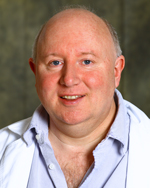 Ariel Escobar
Ariel Escobar
School of Engineering
Email: aescobar4@ucmerced.edu
Phone: 209-228-4618
Web site: Ariel Escobar lab
Research Interests coming soon
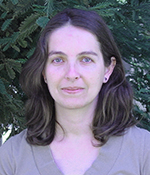 Gabriela Loots
Gabriela Loots
School of Natural Sciences
Email:gloots@ucmerced.edu
Phone: 925-423-0923
Web site:Gabriela Loots lab
Our group is interested in understanding how functional elements are encoded in the human genome and how proteins and transcriptional regulatory elements orchestrate tissue-specific gene regulatory networks during organogenesis. We are also interested in how noncoding regulatory elements cause congenital skeletal defects and contribute to susceptibility to bone and cartilage degenerative disorders such as osteoporosis and arthritis. Our main emphasis is on limb and skeletal development and congenital skeletal abnormalities. We use comparative genomics, genetic engineering, bioinformatics analysis, microarray gene expression and other high throughput genomic approaches to test our genomic-driven hypotheses.
Projects
- Development of transgenic technologies in the frog X. tropicalis for high throughput enhancer validation
- Identification and characterization of evolutionarily conserved ‘anonymous’ human genes
- Genetics of Van Buchem and sclerosteosis, two hyperosteosis disorders caused by mutations in sclerostin
- Characterization of limb, cartilage, and bone enhancer elements
- Exploring the use of carbon nanotubes as scaffolding material for engineered cartilage tissue
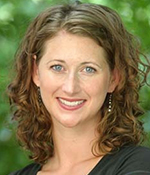 Kara McCloskey
Kara McCloskey
School of Engineering
Email: kmccloskey@ucmerced.edu
Phone: 209-228-7885
Web site: Kara McCloskey lab
Our laboratory includes three general areas of research: a) stem cells, plasticity, and differentiation, b) cell characterization, isolation, and/or selection to achieve high levels of cell purity, and c) development of vascular and cardiovascular tissue products. In many ways these three areas are very much related, and, while cutting edge, are built on the heritage of mammalian cell culture.
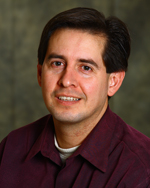 Rudy Ortiz
Rudy Ortiz
School of Natural Sciences
Email: rortiz@ucmerced.edu
Phone: 209-228-2964
Web site:Rudy Ortiz lab
The link between diabetes and obesity with hypertension. Regulation of kidney function and metabolism in a variety of animal models, including seals and dolphins, with the intent that the data will have translative value to clinical medicine.Role of aldosterone plays in exacerbating high blood pressure. Effects of aldosterone antagonism and hypercholesterolemia on renal sodium regulation.
General Behavioral Sciences
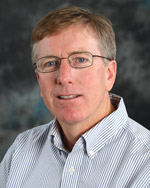 Paul Brown
Paul Brown
Director, Health Sciences Research Institute
School of Social Sciences, Humanities & Arts
Email: pbrown3@ucmerced.edu
Phone: 209-228-4596
Web site:Paul Brown lab
Dr. Brown is a Health Economist/Health Services researcher. He is a member of the Center of Excellence on Health Disparities, with research interests that span a wide range of health disparities issues, including detection of socioeconomic determinants of health (e.g., income inequality and stroke incidence), identifying the burden of disease and access to services for elderly and people with chronic condition (including the problems indigenous people face in accessing health services), and the effectiveness, cost effectiveness and sustainability of health services aimed at reducing health disparities for vulnerable populations.
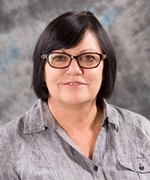 Robin DeLugan
Robin DeLugan
School of Social Sciences, Humanities & Arts
Email:rdelugan@ucmerced.edu
Phone: 209-228-4032
Web site:Robin DeLugan lab
Community. Collective identity. The nation-state. Migration and transnationalism. Political anthropology. Indigenous peoples of the Americas. Social memory. Museums. Tourism. Material culture.
 Paul Maglio
Paul Maglio
School of Natural Sciences
Email:pmaglio@ucmerced.edu
Phone: 209-381-4389
Web site:http://faculty.ucmerced.edu/pmaglio/
Dr. Maglio's research interests include service science, human-computer interaction and distributed cognition
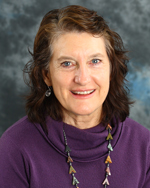 Carol Sipan
Carol Sipan
Lecturer, School of Social Sciences, Humanities & Arts
Email: csipan@ucmerced.edu
Phone: Coming soon
Website: Coming soon
Researcher in Public Health

